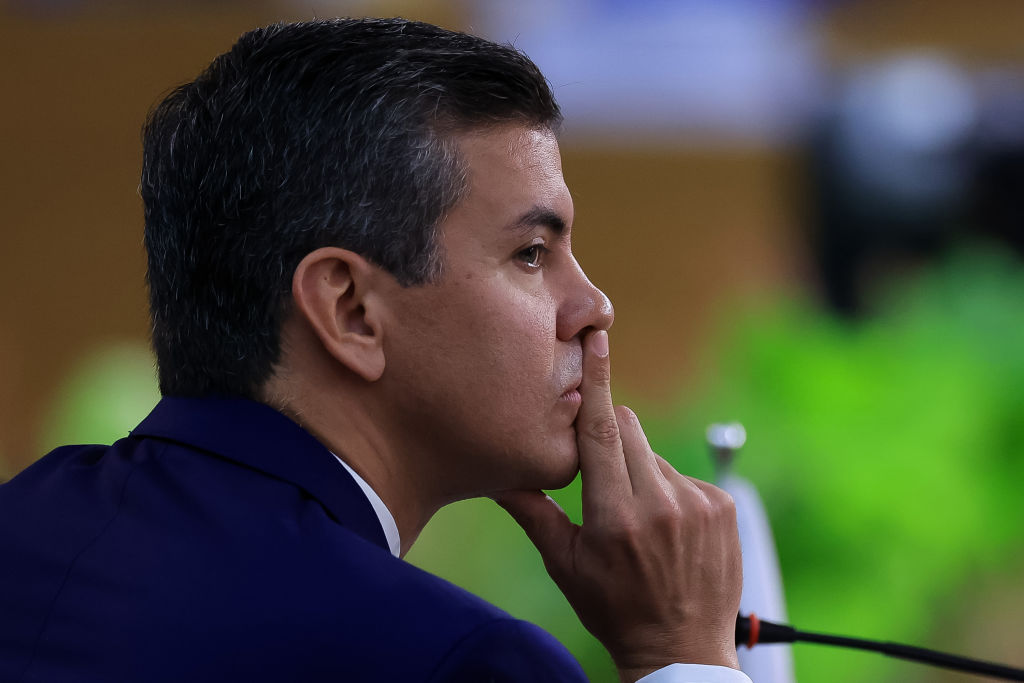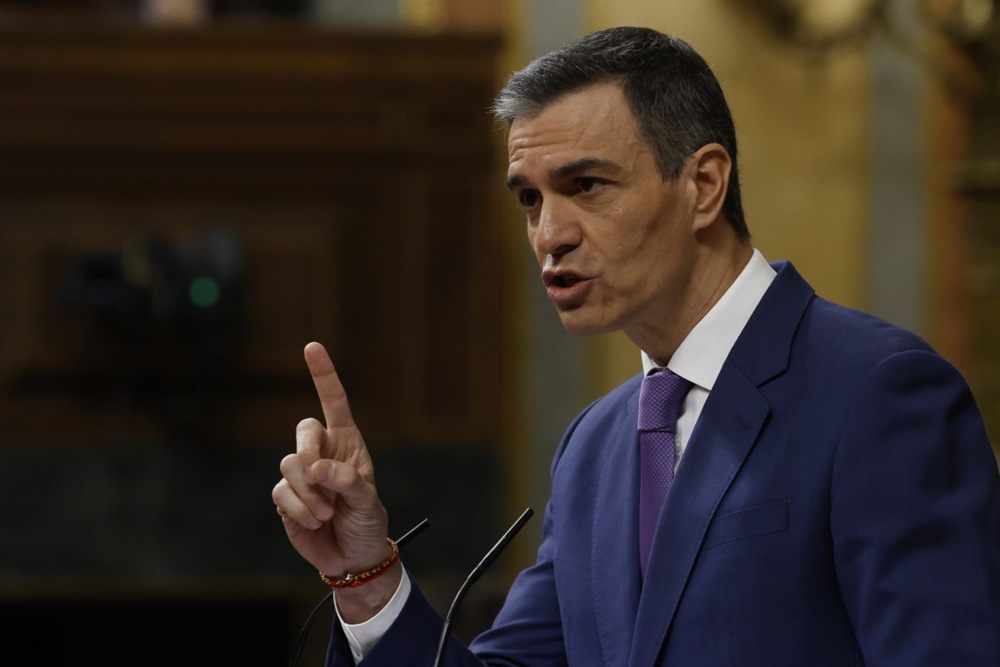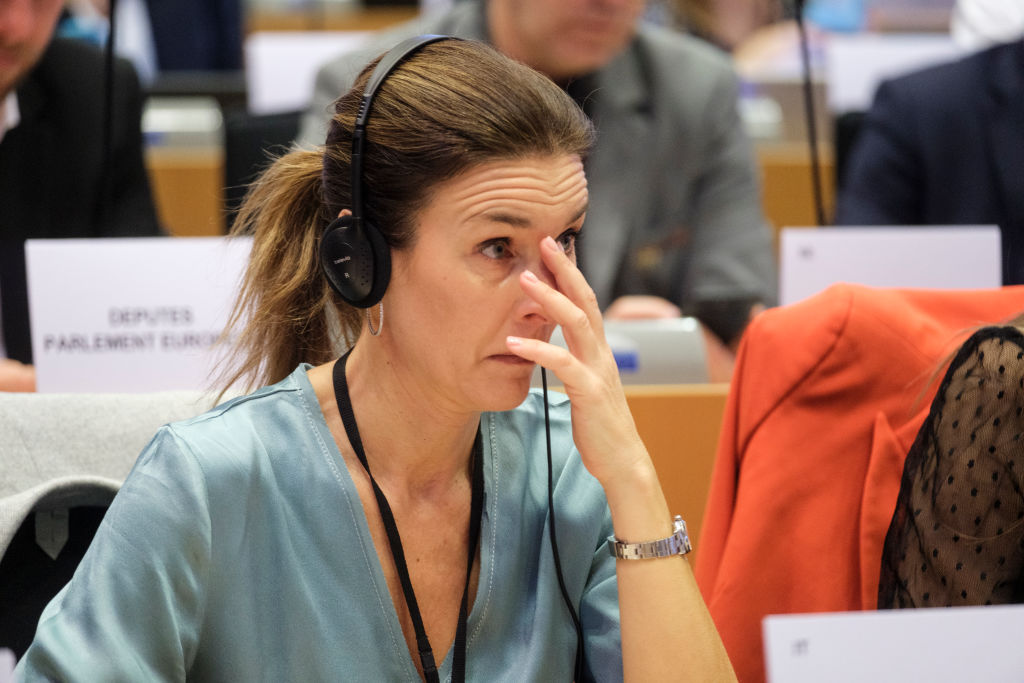Spain’s ruling Spanish Socialist Workers’ Party (PSOE) has been rocked by a serious internal corruption scandal.
It centred on Santos Cerdán, the PSOE’s organisational secretary and a key ally of Prime Minister Pedro Sánchez. Cerdán resigned after a Supreme Court judge found “firm evidence” suggesting his involvement in a kickbacks scheme related to public contracts.
The development has intensified scrutiny of Sánchez’s administration, already grappling with multiple corruption allegations, and has fuelled accusations of systemic misconduct within the PSOE.
The latest scandal emerged from a leaked police report, published by media outlets on June 11, which alleged that Cerdán was involved in illegal commission payments tied to public contracts.
The report, based on recordings made by Koldo García, a former aide to ex-Transport Minister José Luis Ábalos, estimated payments worth €620,000.
Koldo broke down three concepts: A first instalment of €450,000, linked to three contracts; another of €50,000 , related to two recent contracts, which he referred to as “the last two” and a third of €70,000, corresponding to what was called “the shoe.”
It suggested Cerdán allegedly colluded with Ábalos and García in a scheme to secure kickbacks, further implicating senior PSOE figures. Cerdán, who stepped down from his parliamentary seat and party posts on 12 June, denied the allegations, stating he would testify in the Supreme Court on June 25 in a bid to clear his name.
Koldo allegedly offered Ábalos a commission of €500,000 a month for three years from a Venezuelan oil company.
On top of this, the Guardia Civil report cited intercepted messages in which Cerdán allegedly instructed his ally, Koldo García, to insert “two ballots” during the 2014 primary process won by Sánchez — effectively rigging votes.
Sánchez, addressing the public from PSOE headquarters in Madrid, apologised to voters, expressing “deep disappointment” in Cerdán, whom he said he had trusted since 2011.
He distanced himself from the scandal, insisting he had no prior knowledge of the allegations and vowed to restructure the PSOE leadership.
Sánchez rejected calls for an early election, maintaining that his government would continue its “political project” until 2027. He accused the opposition, led by the Conservative People’s Party (PP), of orchestrating a smear campaign.
The PP, led by Alberto Núñez Feijóo, seized on the issue and had already organised a large protest in Madrid on 8 June 8, 2025 under the slogan “Mafia or Democracy,” with tens of thousands demanding Sánchez’s resignation.
That preceded the public revelation of the Cerdán scandal and capitalised on a broader wave of public discontent with the PSOE government’s handling of multiple corruption allegations.
Feijóo described alleged corruption as the “hallmark” of Sánchez’s government, arguing that the Prime Minister’s response was “insufficient.”
The PP’s pressure was bolstered by recent polls showing a slight lead over the PSOE, seemingly reflecting public discontent.
VOX, another opposition party, to the right of PP, has demanded a motion of censure to throw out Sánchez.
The lates incident compounded existing corruption probes surrounding Sánchez’s inner circle, including investigations into his wife, Begoña Gómez, for alleged influence peddling, and Ábalos, expelled from the PSOE in 2024 over the “Koldo Case”.
That case allegedly involved kickbacks for medical supply contracts during the Covid-19 pandemic.
Additionally, a former PSOE member was recently accused of a smear campaign against the Guardia Civil unit investigating these allegations, further damaging the party’s reputation.
Sánchez’s minority coalition, reliant on fragile alliances with parties including Sumar and Catalan separatists, faced increasing strain. Deputy Prime Minister Yolanda Díaz has demanded explanations, while the PP has appealed to coalition partners to abandon Sánchez.
Despite Spain’s strong economic performance, these scandals threatened the government’s stability, with the 2025 budget negotiations posing a critical test.
Cerdán’s testimony before the Supreme Court on June 25 will be crucial.
The outcome of the external audit would likely shape whether Sánchez survived or early elections were triggered.
Ongoing investigations into Ábalos, Sánchez’s family and the Attorney-General risked further destabilisation.
The PSOE has a long history of corruption allegations. One of the most notorious related to the ERE in Andalusia, where more than €680 million in public funds were misused through fraudulent early retirement schemes.
This led to the conviction of two former Andalusian PSOE presidents, Manuel Chaves and José Antonio Griñán.
In the 1990s, the Filesa case revealed illegal party financing through front companies, resulting in prison sentences for several party officials.
Around the same time, Luis Roldán, the PSOE-appointed director of the Civil Guard, was caught embezzling public funds and fled the country before being arrested and sentenced to 31 years in jail.
More recently, in 2023, the Mediador case implicated PSOE deputy Juan Bernardo Fuentes Curbelo in an alleged bribery and influence-peddling network involving businessmen and illicit parties.





